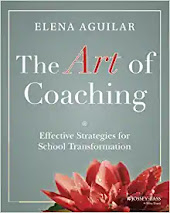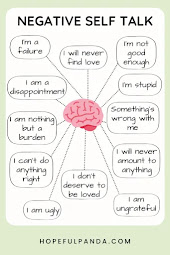But for this blog post I want to focus on the last episode of the second season, "Aim Higher." And not just because he interviews Bette Midler and Emily Blunt, although that is a bonus. As Helen Zaltzman of The Allustionist podcast might say, there is a Category A swear.
Yes, you should listen to the podcast yourself, although not right now. Or you can bop over to a Medium article that gives you a generalized synopsis of the entire season and the coaching stages I'm discussing from a specifically educational perspective.
For example, at the very beginning, Lewis notes that he's learned a couple of things about coaching because of the series. First, good coaches can make an impact. Please note the adjective "good," but also note that there might be an implication that more of us need coaches. If you listen to any of the other episodes, that will become clearer although I will go on record here that in a prior episode Lewis seems to imply that anyone can be a coach and I might dispute that.
The second thing he learned is that the "people who get the best coaches aren't always the people who need them the most."
I will also note that, to me, this is the most self-indulgent of the episodes but I appreciate that Lewis puts himself through the coaching process with conflicting emotions. In my work as an instructional and administrative coach, I think there are many who have a similar sense of conflict in that they feel like they don't really need a coach so they put up with the process.
So keep that in mind: he put himself through the coaching process with some reluctance as much to be coached as to explore the process and his own response to it. As a coach, I got some really interesting insights.
A little more context: Lewis chooses to work with a voice coach and not just any voice coach, but someone who has worked with people like, well, Better Midler and Emily Blunt. Eric Vetro. Why? Lewis perceived a weakness he knew he could not fix on his own.
 In February 2018, I wrote a blog post about instructional coaches. At the end I remind folks to look for these qualities in a consultant/coach: "mentor, listener, encourager, researcher, curator, disseminator, PD coordinator/collaborator, partner, and learner." Most of that remains the same although I might put less emphasis on PD coordinator/collaborator unless that's what's important to the teachers and the school. I think it's imperative that whoever is a consultant/coach is also a learner.
In February 2018, I wrote a blog post about instructional coaches. At the end I remind folks to look for these qualities in a consultant/coach: "mentor, listener, encourager, researcher, curator, disseminator, PD coordinator/collaborator, partner, and learner." Most of that remains the same although I might put less emphasis on PD coordinator/collaborator unless that's what's important to the teachers and the school. I think it's imperative that whoever is a consultant/coach is also a learner.
In the first 90 seconds, we learn Lewis's strategy has been to hide his weakness. Huh. Now, some of us might say that means we are trying to work to our strengths. But what if our weakness matters? What if that particular weakness interferes in some way with our ability to do our jobs or to pursue our passions? Depending on the weakness, a coach may be the way to rectify the situation OR to find better ways to manage the weakness. Just food for thought.
While Lewis's journey is an interesting one, what I found more interesting is that he identified five stages of being coached.
Stage 1: Mutually beneficial
Vetro won't take someone as a client unless he believes he can help them. Would that be true if he were at the beginning of his career? Based on Vetro's own story, I think so. And based on Vetro's telling of a person with whom he chose not to work, I think that if he believed he could not help someone achieve what they needed and wanted, he would choose not to work with that person. So despite Lewis's self-deprecation, a self-defense mechanism many of us use, Vetro was willing to see Lewis again. And even though Vetro is an amiable and easy-going guy, he has expectations and will hold Lewis accountable.
But here is something else I noted. Vetro gently pushed Lewis to identify what he wanted to accomplish and why. Because Vetro is an experienced coach, he knew there were certain things they needed to do and Vetro likely does with all of his clients. We heard something similar in other episodes as coaches asked a lot of questions to get to the heart of what the person really wanted to accomplish, really wanted to do, really wanted to learn.
So yes, the experience must be mutually beneficial, but if the coach doesn't listen well and doesn't ask good questions and keep listening well rather than mentally crafting a solution, the coachee, the person being coached, is not going to benefit.
Stage 2: The coach gradually takes control
In education, the coach-coachee relationship has got to be a partnership. The classroom teacher has more expertise about what's going on in her classroom than I do because she's with those students every day. And if she's an elementary school teacher, she's with those kids all day every day. The building administrator knows far more about his building than I will ever know. Unless he is new to the district, he knows the history of that building; there are influences affecting him that he doesn't even realize. Yet. The superintendent quite possibly spent her entire career in that school district. She may have taught in one building or even in more than one. She may have been an assistant principal in that or a different building. And so on. She knows something about every single building in her district. She has stories. She knows stories she's forgotten she knows. As a coach, I know what I see and hear from that teacher or administrator or what I observe based on the day or few days a week or a month I am able to be on site, if being on site is even an option.
If my coaching is completely virtual, my only lens may be that person and that person may not be completely honest with me. The dishonesty is typically unintentional for so very many reasons, so my job is to ask questions and to listen very, very carefully. All. The. Time.
At some point, however, the coachee recognizes the partnership and trusts the coach really does have his or her best interests at heart and in mind. Any time there is a need for a courageous conversation, the coachee knows that the coach is pushing for the coachee's best.
In the podcast episode, Vetro sounds a bit exasperated when he asks Lewis why he's still drinking carbonated beverages when Vetro has told him not to. Lewis deflects and tries to joke about it, and while Vetro goes along with joking, it's possible to hear how serious Vetro is. Maybe it seems stupid to force a grown man to stop drinking carbonated beverages as part of his journey to become a better singer, but is Lewis really going to argue with all of those stars who have worked with Vetro?
While the Medium writer identifies this as "controlling behavior," I see it as the coach forcing the coachee to make a choice.
You want to improve at this thing. You have entrusted me to help you. I have some expertise and I see what you cannot see about yourself, so you have to trust me when I say to stop (or start) doing this thing.
And that will eventually lead to Stage 3: Buy-in
At some point, the coachee decides the coach really does know what he or she is doing and really does have the individual's best interests at heart. If there is more than one coachee in a building or in a district, they will talk among themselves. When they learn the work of the coach is not boilerplate, there will be even less resistance because they realize the coach isn't working with Emily exactly the same way she's working with Bette.
Coaches have to understand that getting to Stage 3 will take time. It is rare that a coachee welcomes a coach with enthusiasm, but it does happen. Whenever the buy-in happens, there will be a noticeable shift in attitude and behavior because the person being coached now gets it and is further invested. It's also possible the coachee will push for more and other because they will have captured a vision of the possible; they will have seen how they might transform and how it will benefit their students.
Stage 4: Connecting to Your Center
In the podcast, Lewis notes that this is the stage at which there is a shift to wanting to be sure the coach isn't disappointed. That is true in some fields and disciplines, but I think less so in education. When the people I coach see me as a partner in their work, they trust me to hold them accountable and, by the same token, they are willing to hold me accountable or challenge me if they think they need to be pushed more. Of course, I'll also hear about it if they think I'm asking too much of them and that's a different conversation. I have to keep in mind that their reasons and expectations for being coached are ultimately about their work with students. This has nothing to do with a spotlight center stage.
Stage 5: Wandering About
Lewis notes that an outcome of a good coach is the coach can persuade the coachee to shift the focus on their attention so they are exploring "who [they] are or might be" (41:00-41:18).
In the episode, Lewis talks about wandering about after a lesson and that he just keeps singing. That's not really an option for educators, but reflecting on what they've done, what their students have done, and what they all might do differently could be a form of wandering about, at least in the teacher's head. Reflection on a "performance" matters. Reflection about what worked and what didn't and why it did or didn't work is movement towards change and improvement.
Why transformational coaches matter
At some point, an educator recognizes the power of the coach as a mirror, as a trusted partner, and as an accountability partner. Teachers who want to improve their craft are just like any other professional who might get coached to improve their craft or to adjust something in how they do what they do. Think about golfers who have swing coaches and putting coaches. Every sport has multiple coaches for positions and for specific functions of the game.
Teachers are lucky if they have access to one instructional coach once a month. Good coaches know that there may be a list of things that could be changed or improved or eliminated, but it may be that only one thing will help transform how the educator perceives her work, her craft, and her students. So the coach works to get to that one thing even if it takes all year and they touch on other things along the way. Even a small step forward is still a step forward.
Anyone who has done coaching has stories of those who are just going along for whatever reasons and those who are genuinely interested in improving.
Teaching has always been harder than it looks because the really good teachers make it look easy. I think teaching is just going to get harder and for far too many reasons that don't matter to this particular blog post.
But the teachers and administrators who are willing to try, willing to get coached, and become willing to participate in the process, will understand how a good transformational coach can help transform at least one thing they do in the classroom. And then they have something on which to build so the transformation can continue.


















 Teachers saved me. In every sense of the word. And they saved me because they believed in me, because they saw something I couldn't, because they would not let me quit. Because they coaxed, encouraged, and sometimes even badgered me into keep trying and to try harder. They willed me to be gritty.
Teachers saved me. In every sense of the word. And they saved me because they believed in me, because they saw something I couldn't, because they would not let me quit. Because they coaxed, encouraged, and sometimes even badgered me into keep trying and to try harder. They willed me to be gritty. 